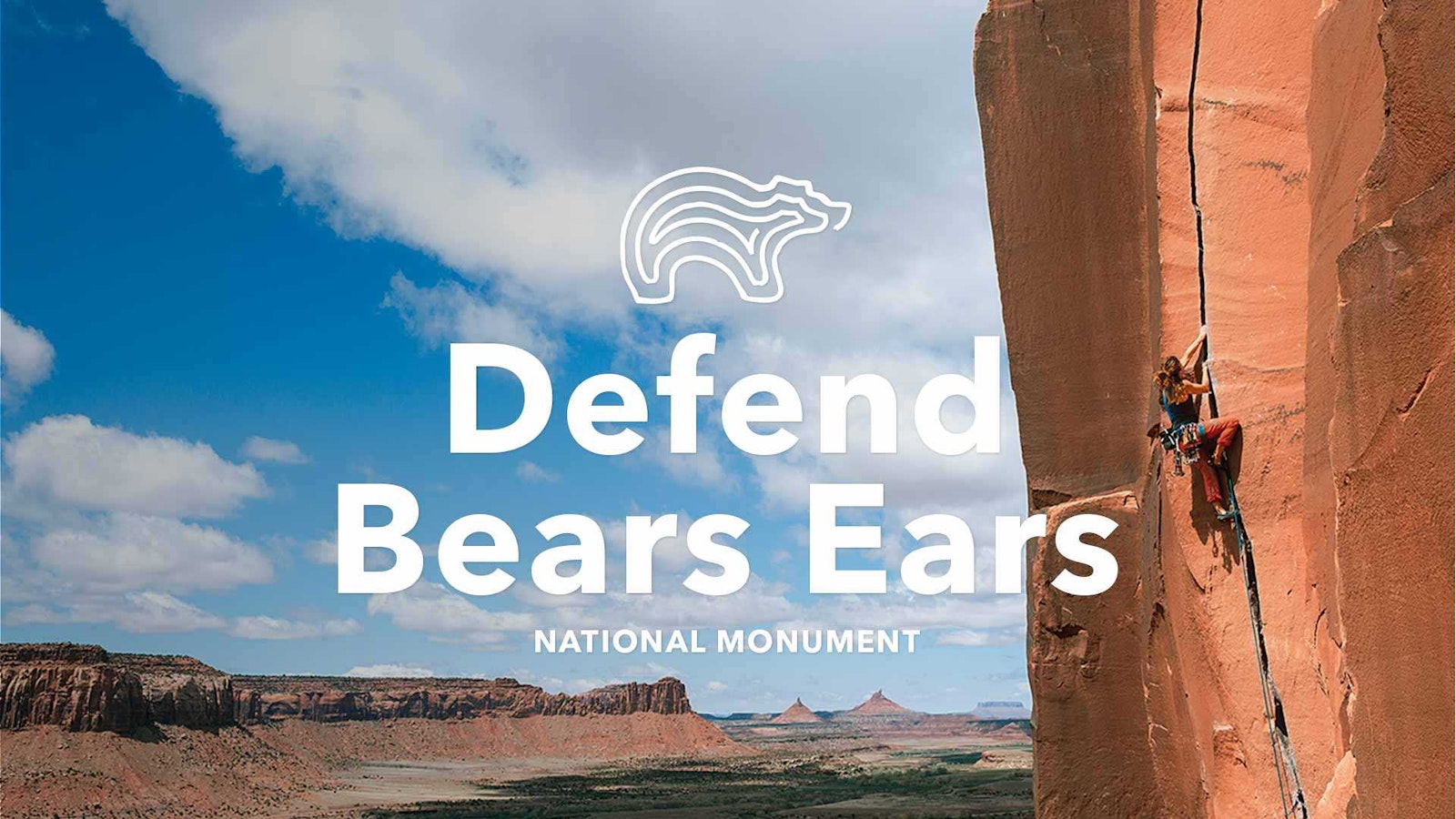Meet My Friend, Patagonia.

Patagonia takes a bite out of Utah state politics.
Patagonia represents what we talk about at Capsule almost daily. They are human beings building a human brand that is doing things for humanity. We have been inside their walls to work on projects together and each time we come out inspired and wanting another visit inside. They are genuine and passionate but not blind, smart but never arrogant and the nicest people we’ve met traveling the world for them.
When they drop their shoulder into something, like the fight to save public lands in Utah, we know someone is going to feel it. This time it’s the apathetic politicians who manage public lands like a drunk manages the straight walk. Rose Marcario is an activist first and chief executive officer of Patagonia second, so when she throws down with the Governor of Utah, you know he’s going to leave the rumble dazed and confused. If you haven’t heard the story on Bears Ears National Monument, go here for an article by Michael Finn that summarizes it nicely. They're willing to fight, as evidenced by Rose's statement this morning.
Suffice it to say, the Governor of Utah is at the wrong end of a big Rose Marcario stick. If you want to tell him so, tweet Gov Gary Herbert here.
The serious part here is the ability for people to have a long enough view to protect lands from resource exploitation. Those who can’t are kept in check with those who can. Let’s go deeper into this subject and identify what it means when brands have a long view:
From our perspective and our book, The Physics of Brand, the humanizing of brands is an important movement. The more brands become the better version of ourselves, the higher likelihood we have to get ourselves out from under some big problems on the horizon.
This, of course, may fly in contrast with those who look at the growth of business relative to governments and cringe. It is seen in some circles as a negative thing that the collective size of business in revenue is approaching, or by some measures exceeding, the size of government (defined as local, state and national combined). This is a concern if your rose-colored glasses only work when looking at governments. To measure how “bad” government or business is for the planet, people or culture, you’d have to include all the dictators, regimes and genocidal rulers from way back. Fortunate or not, the history of today’s corporation isn’t lengthy enough to have a comparable track record. So this writer is betting on the entity (corporation) with a larger check to balance: the almighty Visa card.
As brands are extensions of us as human beings and represent those corporations in commerce, humanizing them is a good behavior. For instance, Facebook is an invention of Mark Zuckerberg (et al), the brand is an extension of him and the employees of that corporation. The more human the brand is, the more society can expect of this brand to protect our privacy, use our information for good and protect the people the brand serves. Yet, many brands have forgotten their human side and hidden behind the corporate veil of “it’s just business.” No one in government says “it’s just government.” This idea that “brand is a facade” plays right into an arcane Madmen-era line of thinking.
Patagonia doesn’t have an ad agency or record. Why would they? No one can tell their story better than the employees and their fanatically loyal followers. An ad agency would muck it all up and create some fake puffery to “position” Patagonia with the “ideal” set of “consumers.” Patagonia doesn’t use buzzwords, they responsibly design and make products for human beings who are members of this fragile planet we call home. They insert themselves into compelling stories of people doing great work and share those stories with their friends (long before Facebook). They have always fought for people, species and the planet in the face of exploitation and destruction.

We’ve been asked many times during our time working with Patagonia, “what is their secret and what is it like to work with them?” Our consistent answer to the first question is they are not marketers in the old sense of the word, but in the ideal sense of the word. They are always crafting stories, snippits and threads to tie back to their responsible heritage. They’re not afraid of any other brand, government or individual on the planet, but they seem to fear for humanity’s ability to be more responsible.
Let’s take this all back to brands, design and the power of an organization to do good. Whether you believe in government or corporate, Patagonia is an example of a brand doing good for good’s sake. If you’re designing a culture (as a start-up) or considering the rebrand for something facing declining margins and sales, here’s what we have for you. Go deep into the question: why does this brand exist at all? Should it exist? Don’t bolt on a fake cause and call it a day - go deep into a reason for being. What would the people miss if your brand wasn’t a part of our culture? Stop treating people like one-dimensional consumers, humanize your brand and find a reason it should remain in our culture.
If you can’t find a reason, pay someone to give you an honest outside perspective. If its your ad agency, remember they pay when you buy media, not when you do good. Find an impartial advisor and let them tell you the truth, no matter how much it hurts.
Thank you for taking the time to read this and we hope to hear about the journey you’re on to find a reason for being.


